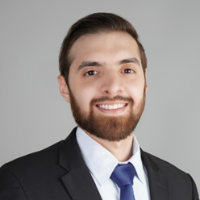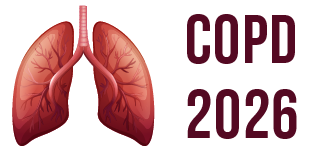3rd World Congress on
COPD and Pulmonary Diseases
September 09-10, 2026 | Barcelona, Spain

Address: Avinguda Del Maresme 78 Ronda De Dalt Exit 15, 08940 Comellà de Llobregat, Barcelona, Spain
COPD 2026

University of New Mexico, USA
Title : Adipose-Derived Mesenchymal Stem Cells for COPD, ARDS, and IPF: Clinical Promise and Pitfalls
Abstract:
Pulmonary diseases such as chronic obstructive pulmonary disease (COPD), idiopathic pulmonary fibrosis (IPF), and acute respiratory distress syndrome (ARDS) are leading causes of global morbidity and mortality due to the lung’s limited regenerative capacity and the absence of curative therapies. Adipose-derived stem cells (ADSCs) have emerged as a promising tool in regenerative medicine, offering an abundant, minimally invasive source of multipotent cells with potent immunomodulatory, anti-inflammatory, and antifibrotic properties. Preclinical studies have demonstrated that ADSCs attenuate inflammation, reduce extracellular matrix deposition, and promote alveolar repair in animal models of LPS-induced ARDS, bleomycin-induced fibrosis, and cigarette smoke–induced COPD. These effects involve inhibition of TGF-β1/Smad signaling, restoration of macrophage phagocytic function, and enhanced autophagy. Translational evidence is expanding: a meta-analysis of mesenchymal stem cell therapy in COPD showed significant improvement in 6-minute walk distance and trends toward enhanced FEV₁. Phase I clinical trials in COPD, IPF, and ARDS have demonstrated that systemic administration of ADSCs is safe and feasible. In addition, ADSC-derived exosomes have shown potential in restoring epithelial homeostasis and reducing pyroptosis in preclinical models. Despite encouraging findings, the absence of large-scale efficacy data, challenges in standardization, and unclear long-term safety hinder broad clinical application. This review synthesizes current preclinical and clinical evidence supporting ADSCs in pulmonary disease and highlights the critical need for robust Phase II/III trials. While ADSCs offer substantial promise for lung regeneration, further investigation is essential to define their therapeutic role and clinical impact in chronic and acute respiratory pathologies.
Biography:
Dr. Alexander Manzano Finol is a Venezuelan-born physician with a passion for integrating clinical research, global health, and medical education. A summa cum laude graduate from the University of Zulia and an ECFMG-certified doctor, he brings a multicultural and interdisciplinary approach to internal medicine. He has participated in over 30 clinical trials across various phases, including oncology and infectious diseases, and has received international recognition for his work in metabolic health and COVID-19-related research. Beyond clinical trials, he has served as a scientific advisor, symposium coordinator, and peer-reviewed author, with contributions published in International Journal of Molecular Sciences and Biomedicines. His academic and research leadership is rooted in his roles at CIEM and SEFIEM, where he has mentored future physicians and led public health outreach.
